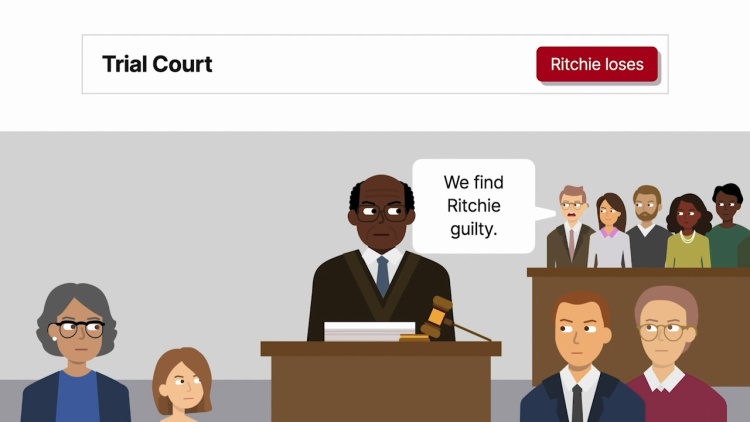Pennsylvania v. Ritchie
United States Supreme Court
480 U.S. 39, 107 S.Ct. 989, 94 L.Ed.2d 40 (1987)
- Written by Robert Schefter, JD
Facts
The Commonwealth of Pennsylvania (plaintiff) charged George Ritchie (defendant) with sexually assaulting his 13-year-old daughter repeatedly over a four-year period. The Children and Youth Services (CYS) of the State of Pennsylvania was the state agency responsible for the investigation. During pretrial discovery, Ritchie requested from CYS all records related to the charges, including a recorded interview of the daughter. CYS refused to comply, citing a Pennsylvania statute directing that CYS records remain confidential except upon court order. Ritchie argued that the CYS file might contain names of potential witnesses and unspecified exculpatory evidence. The trial judge denied Ritchie’s request without examining the entire CYS file. Ritchie’s daughter was cross-examined in depth at trial. Ritchie was convicted of all charges. On appeal, the Pennsylvania Superior Court ruled that failure to disclose the CYS records was a violation of Ritchie’s right to full cross-examination of the victim. The superior court vacated the conviction and held that Ritchie was entitled to a new trial on remand unless the trial court determined that the failure to disclose was harmless error. The Supreme Court of Pennsylvania affirmed the superior court’s decision and further ordered that Ritchie was entitled on remand to review the full CYS file for potential evidence under the Confrontation Clause and the Compulsory Process Clause of the Sixth Amendment to the United States Constitution. The United States Supreme Court granted certiorari.
Rule of Law
Issue
Holding and Reasoning (Powell, J.)
Concurrence (Blackmun, J.)
Dissent (Brennan, J.)
What to do next…
Here's why 899,000 law students have relied on our case briefs:
- Written by law professors and practitioners, not other law students. 47,000 briefs, keyed to 994 casebooks. Top-notch customer support.
- The right amount of information, includes the facts, issues, rule of law, holding and reasoning, and any concurrences and dissents.
- Access in your classes, works on your mobile and tablet. Massive library of related video lessons and high quality multiple-choice questions.
- Easy to use, uniform format for every case brief. Written in plain English, not in legalese. Our briefs summarize and simplify; they don’t just repeat the court’s language.





